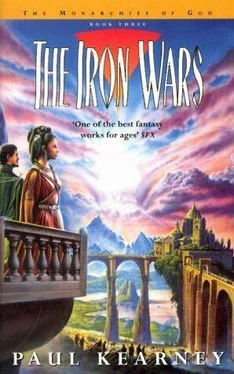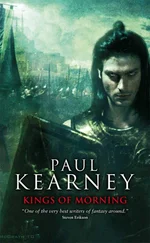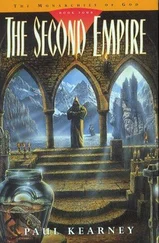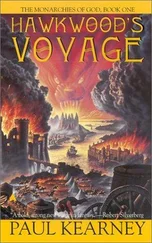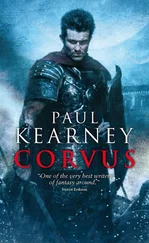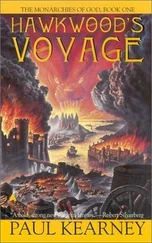Paul Kearney - The Iron Wars
Здесь есть возможность читать онлайн «Paul Kearney - The Iron Wars» весь текст электронной книги совершенно бесплатно (целиком полную версию без сокращений). В некоторых случаях можно слушать аудио, скачать через торрент в формате fb2 и присутствует краткое содержание. Жанр: Фэнтези, на английском языке. Описание произведения, (предисловие) а так же отзывы посетителей доступны на портале библиотеки ЛибКат.
- Название:The Iron Wars
- Автор:
- Жанр:
- Год:неизвестен
- ISBN:нет данных
- Рейтинг книги:4 / 5. Голосов: 1
-
Избранное:Добавить в избранное
- Отзывы:
-
Ваша оценка:
- 80
- 1
- 2
- 3
- 4
- 5
The Iron Wars: краткое содержание, описание и аннотация
Предлагаем к чтению аннотацию, описание, краткое содержание или предисловие (зависит от того, что написал сам автор книги «The Iron Wars»). Если вы не нашли необходимую информацию о книге — напишите в комментариях, мы постараемся отыскать её.
The Iron Wars — читать онлайн бесплатно полную книгу (весь текст) целиком
Ниже представлен текст книги, разбитый по страницам. Система сохранения места последней прочитанной страницы, позволяет с удобством читать онлайн бесплатно книгу «The Iron Wars», без необходимости каждый раз заново искать на чём Вы остановились. Поставьте закладку, и сможете в любой момент перейти на страницу, на которой закончили чтение.
Интервал:
Закладка:
There was a moment of silence, and then Corfe came out of his hiding place. The Queen Dowager was sitting at her dressing table, chin sunk on breast. She looked up at him as he emerged from behind the tapestry and he saw to his shock that there were tears in her eyes, though her face was set as hard as that of a statue.
“God knows how I ever gave birth to that,” she said, and something in her voice made the hairs on Corfe’s nape stand up.
She rose. “The fool had not the courage to take the seal outright-he must send a lackey to do it for him. Well, I am forewarned, which is something. You must have a set of orders, Colonel, something suitably vague so that you may not be accused of overreaching yourself. I shall see to it at once.”
Corfe was already at the door, his arms full of his old uniform, rusting Merduk armour, the sabre baldric over one shoulder. “What would you have me do?” he asked harshly, pausing.
“Save Martellus, if you can. Use the tribesmen awaiting you at the gates. You can have nothing else. If I read this dispatch correctly, Martellus is still at least a week’s march away.”
“An infantry march,” Corfe told her. “My men will do it in half the time.” He hesitated. “Do you really think my tribesmen can make a difference?”
“I would not be sending you else. How soon can you move?”
He turned it over in his mind. His men were exhausted, as were his horses. He had a thousand new recruits, who had to be integrated into his command.
“I need at least a day. Two, probably,” he replied.
“Very well.”
Corfe turned to go, but she called him back.
“One more thing, Colonel-two more, in fact. For the first, there is a Fimbrian grand tercio on the march out there, trying to intercept the southern Merduk army. It may well be closer to you than Martellus is. I shall not presume to teach you tactics, but it might be best to combine with it ere you launch into the enemy.”
Corfe nodded. His mind was racing, juggling the information, trying to make a plan, a sense of it.
“And the other,” the Queen Dowager went on. “I shall write out a commission for you which will await your return. If you can save Martellus and the Fimbrians, you shall be a general, Corfe.”
He looked at her unsmilingly. I am tasting the carrot, he thought. When shall I feel the stick? But all he said was “Goodbye, lady,” before striding out the door.
His men had been billeted in an empty warehouse down by the river. They were lying there with nothing to cover them, on a stone floor which was inadequately strewn with straw. Heaped around their sleeping bodies were opened barrels of salt pork and hardtack and kegs of the weak beer which the Torunnan military quaffed daily. They had torn down some of the timber sidings of the building’s interior to make smoky fires. In the collective fug of the warehouse, the tribesmen stank and the smoke smarted Corfe’s eyes. He roused Andruw, Marsch and Ebro, and the trio stared at him as though he were a ghost, their eyes red-rimmed pits, the filth of the march north still slobbering their clothing.
“What ho, the popinjay,” Andruw said, rubbing his eyes, managing a tired grin.
Corfe began removing the court uniform and donning his old one. He felt furiously ashamed to be clean and well dressed while his men lay like forsaken vagabonds upon the straw-strewn stone. “I thought you would be billeted in regular barracks,” he said, savagely angry.
“It’s all they could find, apparently,” Andruw told him. “I don’t give a damn. I’d have slept in a ditch, the men too. The horses are being well looked after, though. I made sure of that. They too have straw to lie on.”
“Let the men sleep. You three come with me. We have work to do.”
His three officers obeyed him like laboured old men. The expression on Corfe’s face quelled any questions they might have had.
Torunn in winter, like all the northern cities, was a choked quagmire, the streets running with liquid mud, commoners splashing through it ankle-deep, their betters on horseback or carried in sedan chairs or sitting in carriages. It was a weary trek through the crowds under a thin drizzle, but the rain woke them up. Corfe was glad of it. He could still catch the scent of Odelia on his skin, even over the stink of his scarlet armour.
Companies of Torunnan regulars elbowed aside the crowds of civilians at frequent intervals, all heading towards the city walls. The capital was crawling with activity, but there seemed to be no panic, or even unease as yet. The news of Ormann Dyke’s fall was not yet common knowledge, though it was known that the refugee camps about the city walls were about to be broken up. As the foursome made their way to the northern gate, Corfe filled in his subordinates on the situation. Andruw became silent and glum. Like Corfe, he had served at the dyke, but for longer. He had friends with Martellus. The dyke had been his home. Marsch, by contrast, seemed uplifted, almost merry at the thought of meeting a thousand more of his fellow tribesmen.
The prospective recruits were encamped a mile from the walls, out of the swamp of the refugees. They had posted sentries, Corfe was gratified to see, and as he and his three comrades puffed up the slope to meet them a knot of riders thundered out of their lines, coming to a mud-splattering halt ten yards away. The lead rider, a young, raven-dark man as slender as a girl, called out in the language of the tribes, and Marsch called back. Corfe heard his own name mentioned, and the dark rider’s eyes bored into him.
“I hope they don’t put too much store by appearances,” Andruw muttered. “We should have ridden.”
The dark rider dismounted in one fluid movement, and came forward. He was shorter even than Corfe, and he wore old-fashioned chainmail of exquisite workmanship. A long, wickedly curved sabre hung at his side, and Corfe noted the light lance dangling from the pommel of his horse’s saddle.
“This is Morin,” Marsch said. “He is of the Cimbriani. He has six hundred of his people here. The rest are Feldari, and a few of my own people, the Felimbri. He has been elected warleader by the host.”
Corfe nodded.
The dark tribesman, Morin, launched into a long and passionate speech in his own language.
“He wishes to know if it is true that his men are to fight the Merduks only,” Marsch translated.
“Tell him it’s true.”
“But he also says that he will fight the Torunnans too if you wish. They tried to enslave his men when first they arrived, and had them disarmed. Three were killed. But then they were released again. He”-here Marsch sounded apologetic-“he does not trust Torunnans, but he hears you were an officer under John Mogen, and so you must be an honourable man.”
Corfe and Andruw looked at each other. “Torunnan military courtesy is as famed as ever, I see,” Andruw murmured. “I’m surprised they didn’t bugger off back to the mountains.”
“They want to fight,” Marsch said simply, whilst beside him Ensign Ebro, a prime example of Torunnan military courtesy, glowered at the ground.
“Tell Morin,” Corfe said, holding the eyes of the dark tribesman, “that as long as his people serve under me, they shall be treated like men, and I shall speak for them in everything. If I break faith with them, then may the seas rise up and drown me, may the green hills open up and swallow me, may the stars of heaven fall on me and crush me out of life for ever.”
It was the ancient oath of the mountain tribes which Marsch and the rest of the Cathedrallers had once sworn to him. When Marsch had finished translating it to Morin, the dark tribesman instantly fell on one knee and offered Corfe the hilt of his sabre-and Corfe heard the same words coming back at him in the rolling tongue of the Cimbriani.
Читать дальшеИнтервал:
Закладка:
Похожие книги на «The Iron Wars»
Представляем Вашему вниманию похожие книги на «The Iron Wars» списком для выбора. Мы отобрали схожую по названию и смыслу литературу в надежде предоставить читателям больше вариантов отыскать новые, интересные, ещё непрочитанные произведения.
Обсуждение, отзывы о книге «The Iron Wars» и просто собственные мнения читателей. Оставьте ваши комментарии, напишите, что Вы думаете о произведении, его смысле или главных героях. Укажите что конкретно понравилось, а что нет, и почему Вы так считаете.
